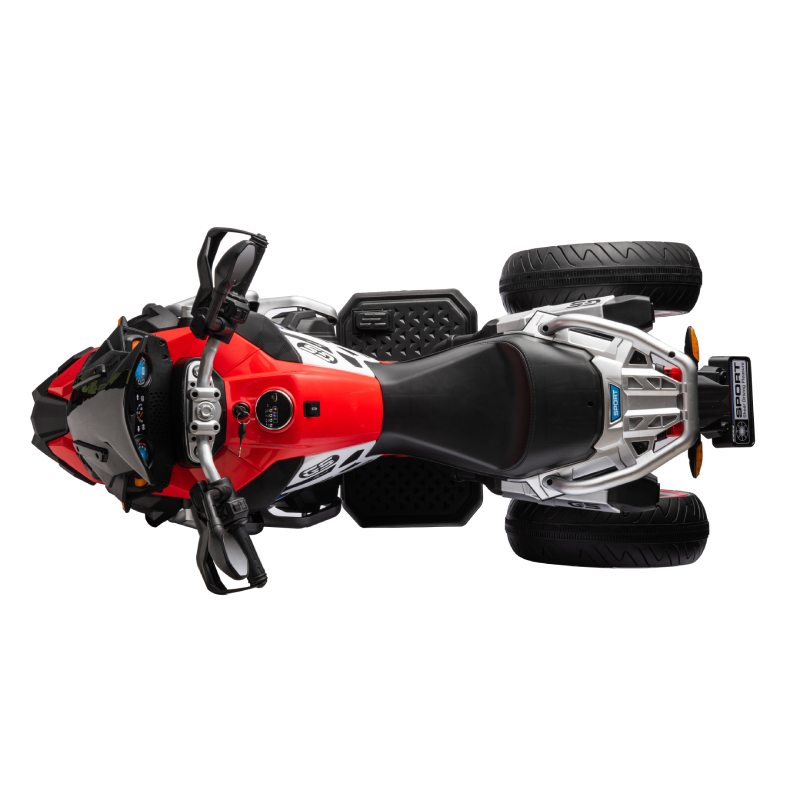can a kid ride a motorcycle
Can a Kid Ride a Motorcycle?
Riding a motorcycle is an exhilarating experience that many people long to experience. However, the question of whether a kid can ride a motorcycle raises several important considerations, including safety, age restrictions, legal implications, and the skills required to operate such a powerful machine. In this article, we will explore these factors in-depth to answer the question can a kid ride a motorcycle?
Age Restrictions and Legal Requirements
One of the first aspects to consider is the legal age for riding a motorcycle. In many countries, there are strict laws regarding the minimum age for obtaining a motorcycle license or permit. For instance, in the United States, most states require individuals to be at least 16 years old to get a motorcycle license. This age restriction is largely in place due to safety concerns and the need for riders to possess a certain level of maturity and responsibility.
Additionally, the type of motorcycle plays a crucial role in determining whether a kid can ride. Many jurisdictions have specific guidelines regarding engine size and power, especially for younger riders. For example, in some areas, a child may be allowed to ride a motorcycle with a smaller engine, typically under 50cc, without a license or with minimal restrictions. However, these laws vary significantly from one place to another, making it essential for parents and guardians to familiarize themselves with local regulations.
Safety Considerations
The safety of young riders is perhaps the most pressing concern when it comes to kids riding motorcycles. Motorcycles, by their very design, offer little protection in the event of an accident, making safety gear vital. Helmets, gloves, jackets, pants, and boots specifically designed for motorcycle riding can significantly reduce the risk of injury.
Moreover, there is a considerable difference between riding a bicycle and a motorcycle. While children may feel confident cycling around their neighborhoods, the complexities of motorcycle operation, including balancing and acceleration, can be daunting. Younger children may lack the physical strength and coordination needed to handle a motorcycle safely, especially at higher speeds. As such, experience and training are critical components in determining whether a child is ready to ride.
can a kid ride a motorcycle

Learning and Skills Development
For those who consider allowing their child to ride, structured learning can make a significant difference. Many organizations offer motorcycle training courses designed specifically for younger riders. These programs teach essential skills, including safe riding practices, emergency maneuvers, and the importance of situational awareness.
Moreover, parental supervision is vital for young riders. It's crucial to monitor their riding habits closely and provide them with opportunities to gain experience in controlled environments, such as parking lots or designated off-road areas. Encouraging young riders to take their time learning the ropes can foster a sense of responsibility and confidence while reducing the risk of accidents.
A Family Activity
Riding motorcycles can also serve as a bonding experience for families. Many parents enjoy introducing their children to the joy of riding while ensuring they remain safe and responsible. Families can participate in motorcycle camping trips or organized rides, allowing them to share their passion for motorcycling while creating lifelong memories.
Parents should also consider investing in equipment designed specifically for children. Many manufacturers produce smaller, lighter, and more manageable motorcycles tailored to younger riders. These bikes are usually designed to be less powerful, allowing kids to build their skills gradually without being overwhelmed by speed or weight.
Conclusion
In conclusion, can a kid ride a motorcycle? The answer is yes, but with numerous caveats. Age restrictions, legal requirements, and safety considerations must be taken into account. With the proper training, protective gear, and parental supervision, kids can enjoy the thrill of riding while minimizing risks. It is essential for parents to assess their child's maturity level and physical capabilities before allowing them to take the leap into motorcycling. Ultimately, fostering a culture of safety, responsibility, and enjoyment will ensure that young riders have positive and enriching experiences on two wheels.
-
Children's Tricycle: Enlarged Seat, Sunshade & Safety Push BarNewsAug.31,2025
-
Sports Kids Bike: High Carbon Steel Argon Arc Welded Frame | Beautiful GiftNewsAug.30,2025
-
Ultimate 24V Children's Car: Power, Fun & Safety for KidsNewsAug.29,2025
-
Children's Electric Car Ride Ons: 2-Seater, Bumper & Audi ModelsNewsAug.28,2025
-
Understanding Voltage in Battery for Children's Motorized CarNewsJun.05,2025
-
Safety Features to Look for in an Electric Car for KidsNewsJun.05,2025
